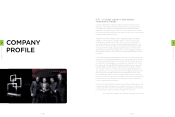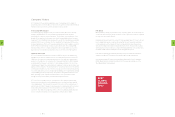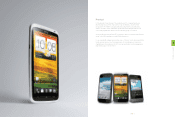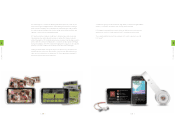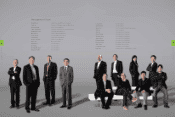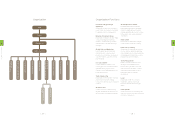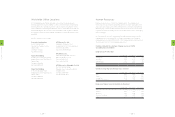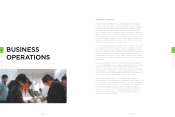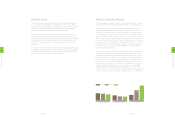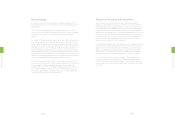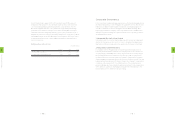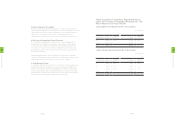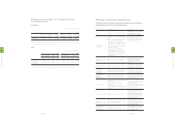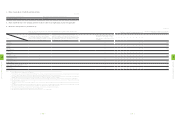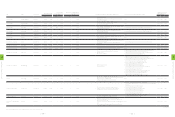HTC 2011 Annual Report Download - page 19
Download and view the complete annual report
Please find page 19 of the 2011 HTC annual report below. You can navigate through the pages in the report by either clicking on the pages listed below, or by using the keyword search tool below to find specific information within the annual report.
Market Analysis
Exceptionally positive prospects for the smartphone sector reflect rising consumer
utilization of mobile internet. Smartphone functions touch on nearly every facet of
modern life. Beyond traditional phone functions, smartphones allow users to manage
online social networking, handle e-mails, access the internet and tap into a variety of
mobile applications. Market growth continues to attract business attention as well as
new competitors eager to profit from exciting opportunities.
Principle mobile phone operating systems (OS) include Android, Windows Phone, iOS
and BlackBerry. Symbian, once the Nokia-backed market leader, has lost significant
market share in recent years due primarily to the hugely successful rollouts of
Android and iOS and their popular app stores. Market trends have since forced Nokia
to abandon Symbian in favor of the Windows Phone OS. Gartner Research gave
Android a dominant 46.5% share of the global smartphone market in 2011.
HTC is the world's leading manufacturer of both Android and Windows Phone
smartphones. Its leading R&D, innovation and operations are further enhanced
by its many long-term strategic partnerships with industry leaders that give HTC
an active role in shaping industry trends. Close cooperation with major telecom
service providers around the globe keeps HTC plugged in to consumer preferences
and emerging needs. HTC supplied 9.1% of the global smartphone market in 2011
(Gartner). We rank amongst the world's top 5 manufacturers of smartphones and
top 10 manufacturers of mobile phones. Going forward, HTC will continue to leverage
innovation and expertise to satisfy diverse consumer needs and further bolster HTC's
brand awareness and value.
HTC enjoyed stable supplies of components and other material inputs during the
past year. Domestic and overseas manufacturers of critical device components
including mobile phone IC chips, LCD screens, touch panels, memory, batteries and
cases continue to expand production to meet rapid growth in demand. Component
suppliers actively seek cooperation with HTC due to our brand name and business
scale, which gives us an advantage in negotiating prices and ensuring stability of
supplies. We also continue to diversify our supplier base and strengthen current
supplier relationships to minimize the risks of relying on disparate supplier channels
and achieve a highly competitive cost structure.
Continued growth in worldwide mobile phone deliveries during 2012 is expected, HTC
will continue to demand adequate capacity commitments from suppliers to ensure
on-time delivery of components. HTC will also support suppliers to raise production
efficiencies and lower costs to enhance mutual competitiveness.
3
BUSINESS OPERATIONS
| 34 |
3
BUSINESS OPERATIONS
| 35 |


